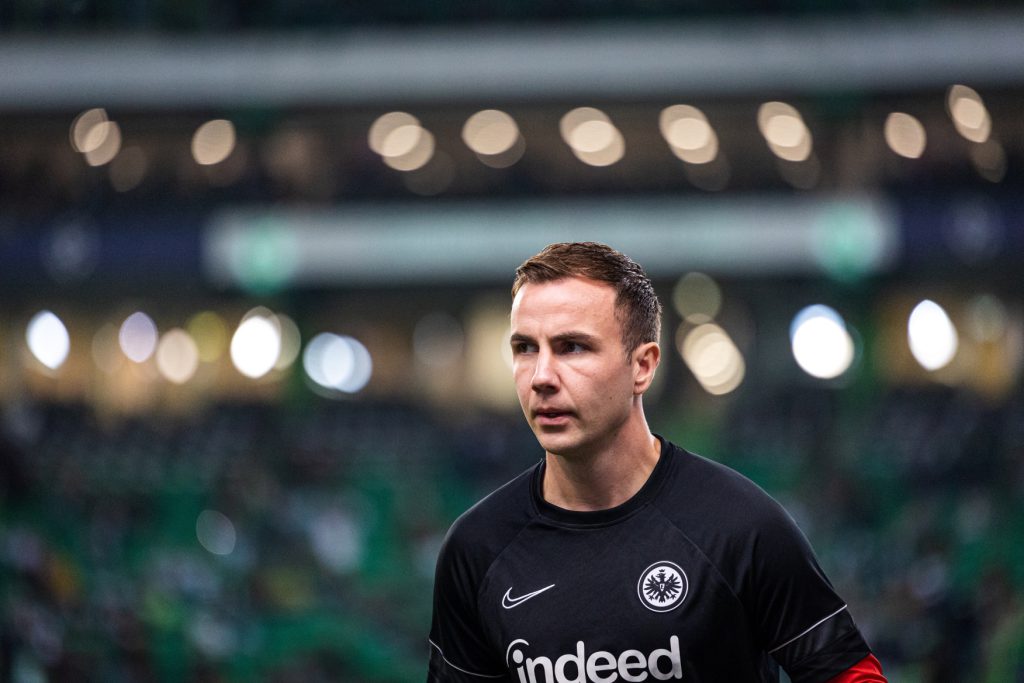Is there a secret to longevity? This health expert says 1,000% yes
In the era of social media, post-COVID, and with mental health at the forefront, a shift is taking […]

After 5 years, Mario Götze returns to the German national team. He got on the squad for the World Cup, the competition in which he was decisive 8 years ago
July 13, 2014, Maracana stadium. In the 88th minute of the World Cup final, Germany v Argentina, Joachim Löw takes off the all-time goal scorer of the finals, Miroslav Klose, and brings on the rising star of German football, Mario Götze. Before the 22-year-old entered the field, the coach found an original way to encourage him: “Go and show that you are better than Messi!”. For a long time, it was thought to be more of a legend. But the footballer confirmed, for The Athletic, that this is how things were: “I didn’t know what else to tell me. He just wanted to motivate me at that moment.” It worked.
In the 112th minute, André Schürrle finished a run down the left side with a cross that reached somewhere near the corner of the small box. There, unmarked, Götze took over on his chest and, from the fall, without letting the ball fall, scored with his left, in the long corner, the goal that brought Germany their fourth world title. The first after a 24-year wait. Then, at that moment, the future of the kid from Memmingen was looking bright. He was playing for Bayern Munich, had just won football’s most coveted trophy by scoring the winning goal, and had become a nation’s hero. But things took an unexpected turn.
In the years that followed, Götze continued to be an important man for Germany, but his spell at Bayern was more of a failure. He returned to Borussia Dortmund, from where he moved to Bavaria, still without reaching the level of the past. Injuries multiplied and, on top of that, he was getting more tired than normal. He underwent several series of tests and was diagnosed with metabolic myopathy, a condition that prevents muscles from recovering normally after exercise. Because of this, he was forced to take a longer break, which some even considered a temporary retirement.
However, Götze understood that there was no question of jeopardizing his career and that he had to learn to manage the condition he was suffering from. He also felt that he needed a restart, so in 2020 he left the Bundesliga and signed with PSV Eindhoven. That’s where the revival began. He found the joy of playing again, got back into his rhythm, and had many moments where he remembered the footballer of the past. This summer, when the opportunity arose to return to Germany, he didn’t hesitate. He agreed with last season’s Europa League winners Eintracht Frankfurt, which also offered him the chance to play in the Champions League.
In Frankfurt, he quickly became an important player. He started all 15 Bundesliga matches, scoring two goals. But the quality of his performances is not only given by numbers. He helped his team finish the year in 4th place in the championship and qualify for the last 16 of the Champions League. He found his peace, also thanks to the fact that in the meantime he became a father, and he is happy.
Even so, the call-up to the World Cup squad is somewhat of a surprise. Götze’s last appearance in the German national team was in November 2017, against France. Despite returning to a good level in recent seasons, he was not called up again. Now, it is brought back by Hansi Flick, second in 2014, even for the tournament in Qatar.
One explanation would be that Germany is missing two important pieces in the offensive: Timo Werner and the eternally unlucky Marco Reus, both injured. In addition, the advantage of experience should not be underestimated. Mario Götze is one of the few members of the squad who know what it’s like to win a world title. His know-how can be important for the new line of the German national team. The only doubt is his medical past, which Hansi Flick doesn’t seem to be worried about: “Mario is a brilliant footballer, you can see in his latest developments that he plays at a very high level. In every game, you can see that he is in great shape and that he can play 90 minutes every 3 days”.
Mario Götze lived every footballer’s dream: he scored the winning goal in a World Cup final. He then slumped but rebuilt his career enough to return for a world finals. It’s already a rediscovered success story, and that’s good news regardless of what happens in Qatar.

In the era of social media, post-COVID, and with mental health at the forefront, a shift is taking […]

With its fast speeds and revolutionary potential, 5G stands out as a noteworthy milestone in the field of […]